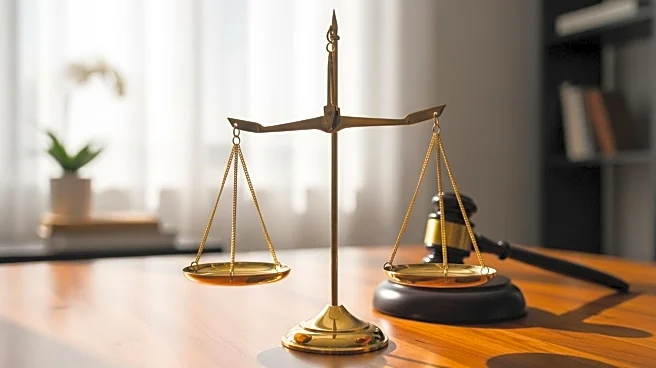What's Happening?
A federal grand jury in Washington has declined to indict Nathalie Rose Jones, a New York woman accused of making threats against President Trump online. Jones, who was arrested in August, allegedly posted messages on social media expressing violent intentions towards the President. Despite the serious nature of the allegations, the grand jury found no probable cause to support the charges, leading to her release under GPS monitoring. This decision comes amidst challenges faced by the U.S. Attorney's Office in securing indictments in similar cases during Trump's administration. The office, led by U.S. Attorney Jeanine Pirro, has encountered repeated difficulties, including failed attempts to indict individuals for assaulting federal officers.
Why It's Important?
The grand jury's decision not to indict Jones highlights potential issues within the federal indictment process, particularly under the current administration's legal strategies. This outcome may reflect broader challenges in prosecuting cases involving threats against high-profile figures, raising questions about the effectiveness of current legal standards and procedures. The inability to secure indictments could impact public perception of the justice system's ability to address threats against political leaders, potentially influencing future policy and legal reforms. It also underscores the complexities involved in distinguishing between genuine threats and hyperbolic statements, especially when mental health factors are considered.
What's Next?
While the grand jury's decision is final for now, the government may attempt to pursue charges again if new evidence emerges. The case could prompt discussions among legal experts and policymakers about the criteria for indictments in threat cases, possibly leading to changes in how such cases are handled. Additionally, the U.S. Attorney's Office may need to reassess its approach to securing indictments, particularly in politically sensitive cases, to ensure that justice is effectively served.
Beyond the Headlines
This case raises important ethical and legal questions about free speech and the limits of online expression. It challenges the balance between protecting public figures from threats and preserving individual rights to express dissent, even in extreme forms. The decision may influence future legal interpretations of what constitutes a credible threat, potentially affecting how similar cases are prosecuted.










